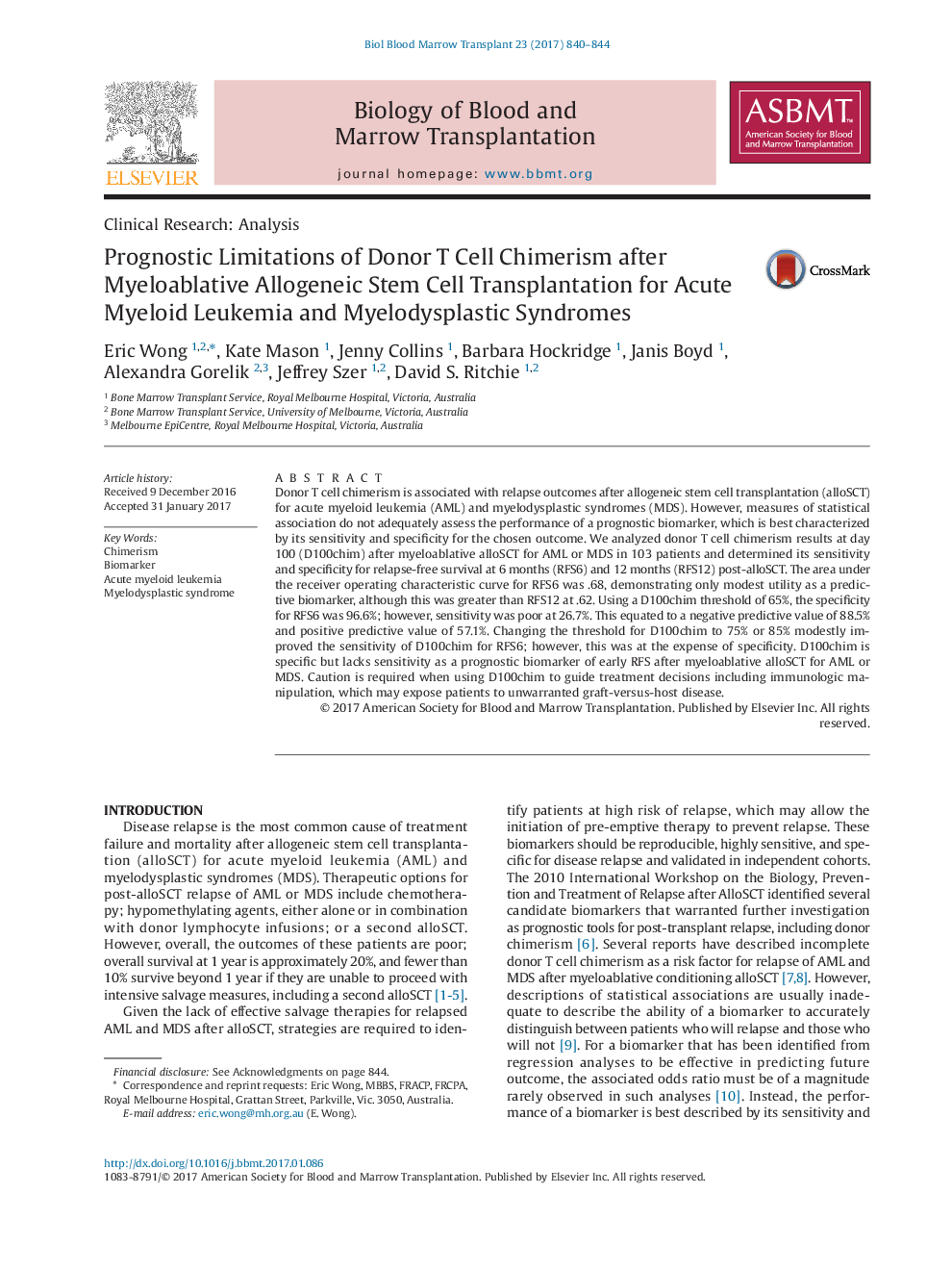| کد مقاله | کد نشریه | سال انتشار | مقاله انگلیسی | نسخه تمام متن |
|---|---|---|---|---|
| 5524093 | 1546241 | 2017 | 5 صفحه PDF | دانلود رایگان |

- T cell chimerism is specific but not sensitive for relapse outcomes after alloSCT.
- This results in a high negative predictive value but low positive predictive value.
- Caution is required when using donor T cell chimerism to guide treatment decisions.
Donor T cell chimerism is associated with relapse outcomes after allogeneic stem cell transplantation (alloSCT) for acute myeloid leukemia (AML) and myelodysplastic syndromes (MDS). However, measures of statistical association do not adequately assess the performance of a prognostic biomarker, which is best characterized by its sensitivity and specificity for the chosen outcome. We analyzed donor T cell chimerism results at day 100 (D100chim) after myeloablative alloSCT for AML or MDS in 103 patients and determined its sensitivity and specificity for relapse-free survival at 6 months (RFS6) and 12 months (RFS12) post-alloSCT. The area under the receiver operating characteristic curve for RFS6 was .68, demonstrating only modest utility as a predictive biomarker, although this was greater than RFS12 at .62. Using a D100chim threshold of 65%, the specificity for RFS6 was 96.6%; however, sensitivity was poor at 26.7%. This equated to a negative predictive value of 88.5% and positive predictive value of 57.1%. Changing the threshold for D100chim to 75% or 85% modestly improved the sensitivity of D100chim for RFS6; however, this was at the expense of specificity. D100chim is specific but lacks sensitivity as a prognostic biomarker of early RFS after myeloablative alloSCT for AML or MDS. Caution is required when using D100chim to guide treatment decisions including immunologic manipulation, which may expose patients to unwarranted graft-versus-host disease.
Journal: Biology of Blood and Marrow Transplantation - Volume 23, Issue 5, May 2017, Pages 840-844